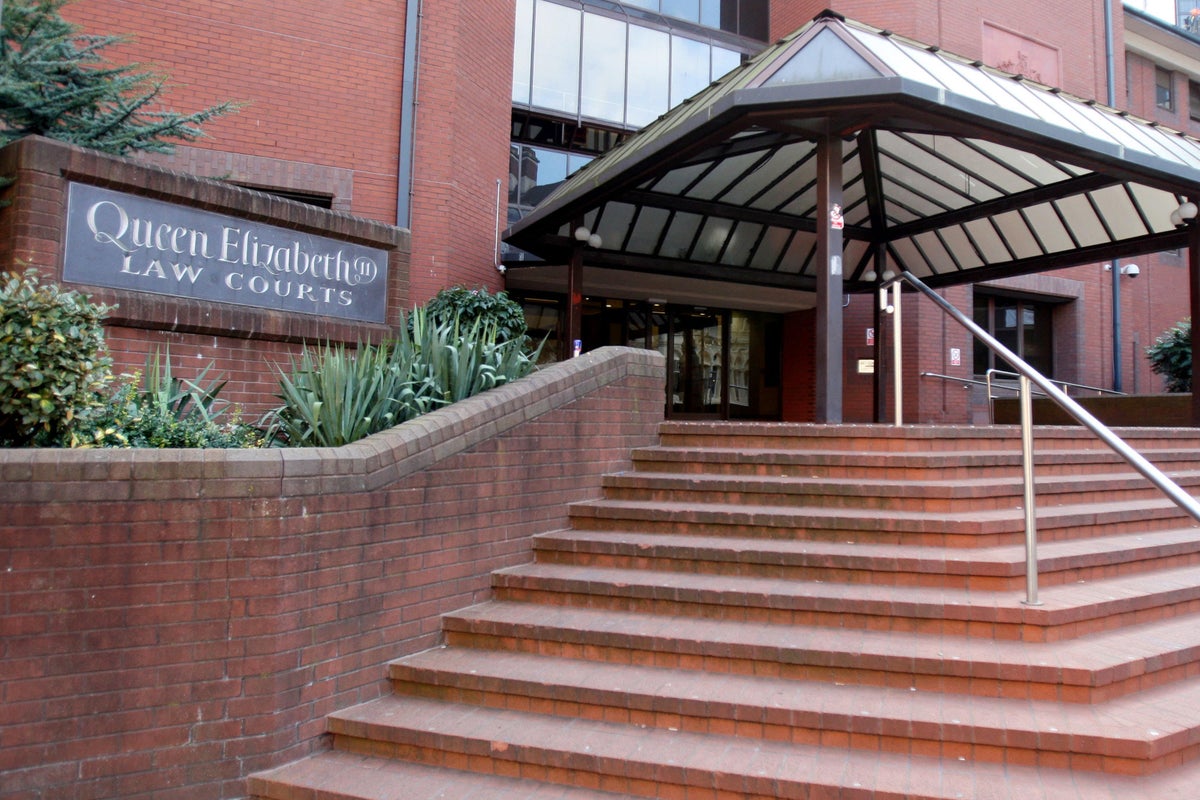
A Twitter user posted an image of a terrorism victim’s severed head, while encouraging others to decapitate anyone who insulted Islam, a terror trial jury has heard.
Ajmal Shahpal is alleged to have praised the killer of French school teacher Samuel Paty for being “as brave as a lion”, and lauded a terrorist who launched a 2020 attack near the former offices of the Charlie Hebdo magazine as a “holy warrior”.
A jury at Birmingham Crown Court was told Shahpal, 41, also tweeted messages backing a Pakistan-based political party which supported the “out-of-hand murder of those who it thinks have committed blasphemy”.
Shahpal, from Nottingham, denies two counts of encouraging others to commit, prepare, or instigate acts of terrorism, and two alternative charges of the same offence being reckless as to whether such acts would be encouraged.
Opening the Crown’s case against Shahpal, prosecutor Dan Pawson-Pounds said: “This is a case about terrorism, that is the encouragement by this defendant of others to commit acts of terrorism.
“He did that by publishing tweets on his Twitter account which specifically encouraged others to behead those who he believed had insulted his religion, his religion being Islam.
“I hope that I hardly need say that this is not a case about mainstream Islam – a worldwide, peaceful religion with nearly two billion followers.
“The focus of this case is on the beliefs and the actions of the defendant, and others he was in contact with or referred to, that is part of that tiny, tiny minority of Muslims who have used religion to justify violence against others.”
Jurors were told Shahpal, originally from Kashmir, published tweets on his open account on September 26 2020, a day after Charlie Hebdo’s former office in Paris was targeted for a second time by Islamic extremist Zaheer Hassan Mehmood.
In short, Mr Shahpal published tweets praising Zaheer Mehmood, calling him a 'ghazi' or holy warrior, and describing those that he had stabbed as 'four pigs of France, the creators or the insolent sketches'— Prosecutor Dan Pawson-Pounds
Mr Pawson-Pounds said Mehmood’s stabbing attack was “both vicious and incompetent” and came five years after 12 people were killed in an attack on Charlie Hebdo’s offices.
The prosecutor told the court on Wednesday: “In short, Mr Shahpal published tweets praising Zaheer Mehmood, calling him a ‘ghazi’ or holy warrior, and describing those that he had stabbed as ‘four pigs of France, the creators of the insolent sketches’.”
It is alleged Shahpal went on to praise other extremists who had attacked those he viewed as blasphemers, including Mr Paty, who was killed on October 16 2020.
Mr Pawson-Pounds said: “Monsieur Paty was a teacher in a French school. He was brutally beheaded by an Islamic extremist, Abdullakh Anzorov.”
Jurors were told Shahpal’s reaction was to praise the murder, calling Mr Paty a “cursed teacher” and repeatedly tweeting that “there is only one punishment for an insolent – beheading, beheading”.
“He also saw fit to tweet an image of the severed head of Samuel Paty lying on the street, saying that ‘the insolent had been sent to hell’ and describing Mr Paty’s murderer as ‘as brave as a lion’,” Mr Pawson-Pounds added.
Further tweets allegedly said that whoever insulted Islam should be killed, and threatened the French government.
On October 24, 2020, the jury heard, Shahpal tweeted: “Whoever is a Muslim or a disbeliever, if he insults or abuses the Holy Prophet (PBUH), it is obligatory to kill him.
“And my opinion is that he must not be given respite to repent. He must be killed immediately. The blasphemer has no right to live for a moment. The only punishment for the blasphemer is death.”
Shahpal was arrested at his home in Birkin Avenue, Radford, in March 2021, and was taken to Nottingham’s Bridewell police station for interview.
He then remained completely silent when questions were put to him.
During a follow-up interview in September of the same year, the defendant answered some questions but stopped replying to officers after being asked if he was liberal or conservative in his religious views.
The court was told anti-terror laws mean that “glorifying” the commission or preparation of acts of terrorism amounted to an offence of encouraging such acts.
Jurors were told Shahpal admitted sending tweets, but denies that he intended to encourage others to commit acts of terrorism.
Mr Pawson-Pounds told the jury: “He will say, I anticipate, that the content of the tweets does not reflect his own beliefs. And that anyone seeing the tweets would have realised that.
“It is the Crown’s case that he did intend to encourage terrorism. The defendant’s beliefs, we say, are clear.”
The trial continues.







